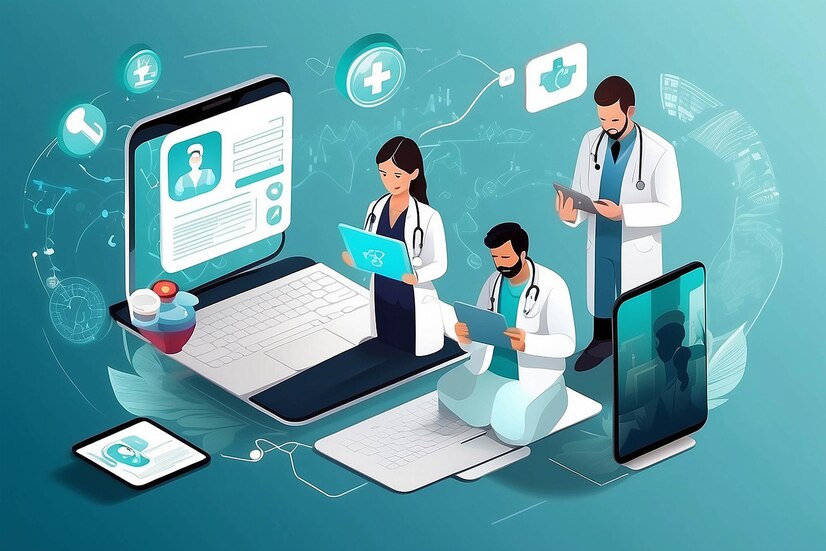The Impact of Modernity and Technology on Medical Billing
Introduction
In recent times, the field of medical billing has experienced significant changes due to modernity and technology. These changes have transformed how medical bills are processed and managed. At Med Revolve Billing, we will explore the impact of modernity and technology on medical billing and highlight the benefits.
The Role of Modernity in Medical Billing
Medical billing has become more optimized and excellent with the advancement of modernity. Modern technologies have automated many procedures, reducing the risks of faults and speeding up the whole procedure of billing. This has led to increased accuracy in billing and faster compensation for healthcare providers.
The Impact of Technology on Medical Billing
Technology has transformed the way medical billing works. Electronic health records (EHRs) have replaced traditional paper records, making it easier and simpler for healthcare providers to access patient information and billing data. Moreover, billing software has made it possible to submit claims electronically.
Benefits of Modernity and Technology in Medical Billing
Technology and modernity have transformed the environment of medical billing. They offer many benefits that improve the billing process’s performance, accuracy, and effectiveness.
1. Automation:
One of the primary benefits of technology in medical billing is automation. Advanced billing software automates repetitive tasks such as data entry, claim submission, and payment processing. This automation reduces the risks of human mistakes and speeds up the billing process.
2. Faster Processing:
Electronic billing allows healthcare providers to submit claims quickly and excellently. Electronic claims are processed much faster than paper claims. These claims lead to quicker compensation and improved cash flow for healthcare providers.
3. Increased Accuracy:
Technology and modernity improve the accuracy of medical billing by reducing the risk of errors associated with manual processes. Billing software can automatically verify claims, ensure proper coding, and resolve potential errors before submission, leading to more accurate billing.

4. Cost Savings:
Implementing technology in medical billing can result in significant cost savings for healthcare providers. By optimizing procedures, reducing errors, and removing paperwork, technology helps to reduce administrative costs and improve overall performance.
5. Improved Patient Experience:
Technology and modernity can increase the patient experience by providing more transparent and accessible billing information. Patients can easily access their billingstatements, understand their charges, and receive timely updates on their claims, leading to higher satisfaction levels.
Better Compliance:
Technology helps healthcare providers adhere to complex regulations and standards. Billing software can ensure that claims are submitted correctly, codes are up to date, and documentation meets regulatory requirements. It also reduces the risk of audits and penalties.
Data Security:
Data security has become a top priority with the increasing digitization of medical records and billing information. Advanced billing software offers decisive security measures to protect sensitive patient information, reducing the risk of data hacking.
Enhanced Reporting:
Technology and modernity allow healthcare providers to generate complete reports and analytics on their billing data. These reports may be utilized to monitor key performance metrics, identify patterns, and make well-informed decisions that will improve financial performance and billing practices.
Challenges of Modernity and Technology in Medical Billing
Integrating modernity and technology into medical billing has brought many advantages, such as increased performance and accuracy. However, these benefits also bring challenges that must be handled. Here are some of the key challenges:
Difficulty of Systems:
Modern medical billing systems can be complex, requiring specialized knowledge to operate efficiently. If not appropriately managed, this complexity can lead to errors.
Security Concerns:
With technology comes the risk of data hacking and cyber-attacks. Protecting patient information and maintaining compliance with privacy regulations is always a challenge.
Integration with Electronic Health Records:
While EHRs offer many benefits, integrating them with billing systems can be challenging. Ensuring that information flows smoothly between these systems for accurate billing is crucial.
Costs and Budgeting:
Implementing and maintaining modern billing systems can be costly. Healthcare providers must carefully budget for these expenses to continue operating effectively.
Compliance with Regulations:
The healthcare sector is subject to strict regulations, and staying obedient to changing regulations can be challenging. Failure to do so can result in fines and legal issues.

Teamwork:
Modern medical technology requires effective communication and information sharing between systems. A lack of teamwork can lead to failure and errors.
Workflow Efficiency:
Technology can improve efficiency, but it can also introduce new challenges to workflow management. Therefore, it is essential to design workflows that utilize technology effectively. Handling these challenges requires combining technological solutions, continuous training, and a commitment to compliance and data security. By handling these challenges well, doctors and hospitals can use modern technology in billing while avoiding risks.
Conclusion
The impact of modernity and technology on medical billing has been significant. It leads to increased efficiency, accuracy, and patient satisfaction. Med Revolve Billing is at the forefront of these advancements, utilizing automation, faster processing, and improved data security to transform the medical billing process.
Frequently Asked Questions
Yes, technology has significantly streamlined the medical billing process by automating tasks, reducing errors, speeding up claim processing, and improving overall efficiency and accuracy.
Technology in medical billing plays a crucial role by automating coding and billing tasks, facilitating electronic claim submissions, ensuring compliance, managing patient records, and enabling efficient communication between healthcare providers and insurers.
A medical biller needs skills in using medical billing software, electronic health records (EHR) systems, coding systems (ICD-10, CPT, HCPCS), data entry, and proficiency with spreadsheets and other office software.
Technology is used in medical billing to automate coding, submit electronic claims, verify insurance, manage patient records, track payments, handle denials, and generate reports for financial analysis.
Engage and Explore
How Med Revolve Billing can increase your revenue and optimize your RCM

